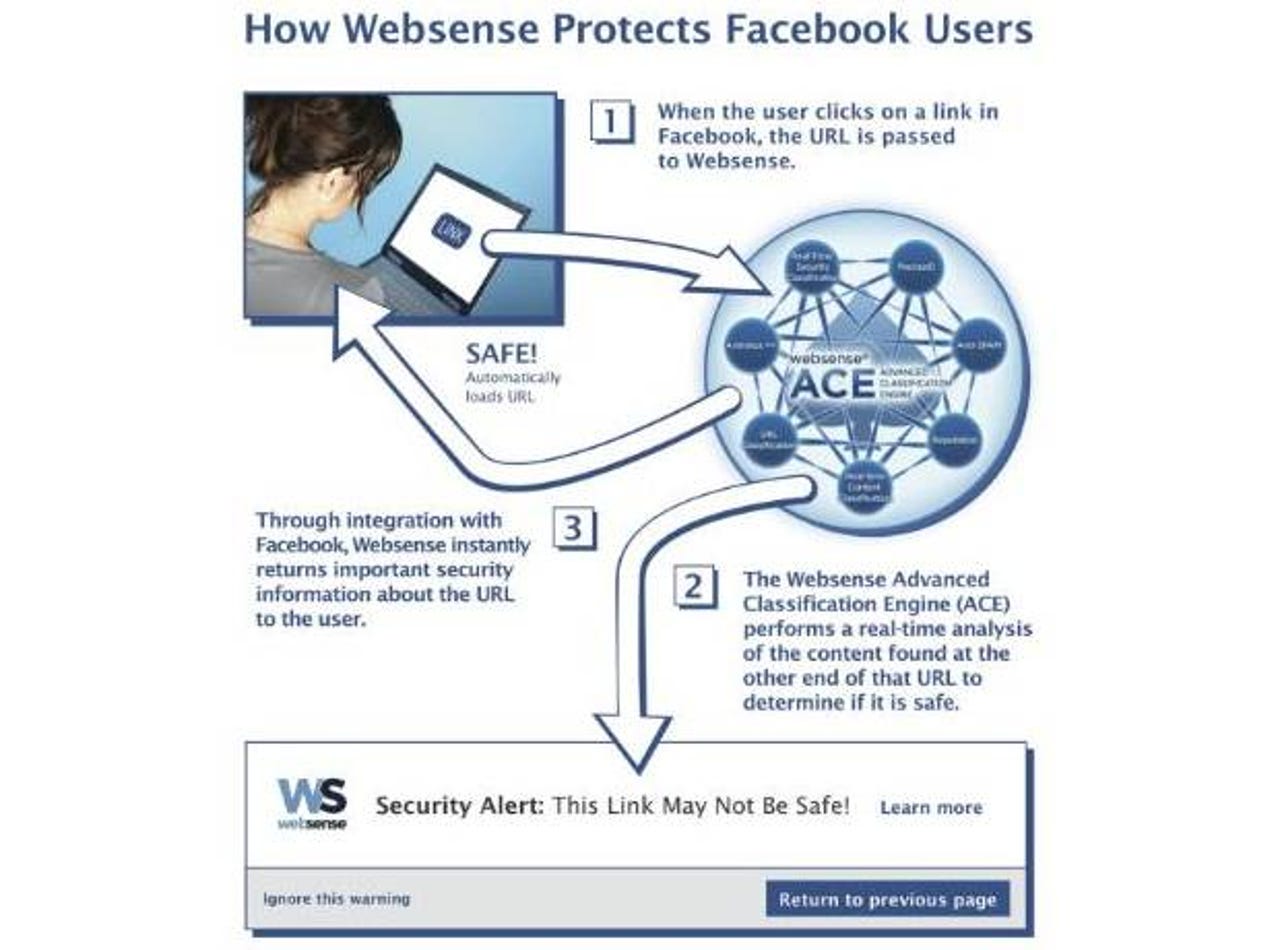Facebook partners with Websense to scan URLs for malware

Facebook has partnered with Web security gateway software company Websense. The two companies announced today that Websense's technology will help to protect Facebook's 800 million active users from links that lead to malware and malicious websites.
The technology builds on Facebook's existing systems for stopping users from clicking on links without knowing the trustworthiness of the destination. When a Facebook user clicks on a link, it will be checked against the Websense database.
If Websense determines the link is malicious, you will be taken to a page with three options: continue at your own risk, return to the previous screen, or get more information on why it was flagged as suspicious. Here's the text that will show up on the page in question:
Security Alert: This Link May Not Be Safe
Facebook has teamed up with Websense to help protect you online. The link you are trying to visit has been identified as potentially unsafe by our trusted partner. Visit the Facebook Security Page to learn more about staying safe on the Internet.
Websense: This website was classified as abusive This warning is provided in collaboration with Websense. Learn more
The blue "Return to previous page" button is in the bottom-right corner and is much bigger than the "Ignore this warning" link in the bottom-left corner. This is a good idea for the more ignorant Facebook users, and it still leaves the door open for more tech-savvy users who know what they're doing.
This new Facebook security service is powered by the Websense ThreatSeeker Cloud, an advanced classification and malware identification platform that analyzes Web content in real-time. Websense's proprietary technology is powered by the Advanced Classification Engine (ACE), which can not only block known malware sites, but also those which the system has never encountered before.
Hopefully, this additional security layer will help Facebook with the various scams that go viral on the social network. It won't completely eliminate them, but it should cut down on the number of users that share them, and thus how widely they spread.
"Facebook cares deeply about protecting users from potentially malicious content on the internet," Dan Rubinstein, Facebook product manager for Site Integrity, said in a statement. "We are excited about our partnership with Websense to provide industry leading tools to help our users protect themselves."
"Websense has been analyzing and classifying the internet for more than 15 years, and now all Facebook users will be protected by the same core technology that is used in the market-leading Websense TRITON™ enterprise security solutions," Dan Hubbard, Websense Chief Technology Officer, said in a statement. "Every day, Websense Security Labs works to discover, investigate, and report on advanced internet threats that are designed to circumvent antivirus products. By providing real-time protection from malware, spyware, inappropriate content, data leaks, and spam, we make it safe for people and businesses to use the web."
See also:
- Symantec finds 15% of Facebook videos are likejacking attacks
- Three weeks later, Facebook has paid $40,000 in security bug bounties
- Facebook launches security bug bounty program
- Security experts have mixed feelings about Facebook's privacy revamp
- Facebook testing two new mobile security features
- Facebook improves safety, security tools; experts not impressed
